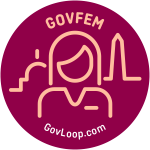If you’re a working woman, you’ve probably had this experience. You meet someone at a professional event – a conference, networking event or even a scheduled speaking engagement. You discuss work and your shared professional interests. You exchange business cards and then you leave.
You’re expecting a LinkedIn connection or maybe even a follow-up conversation about how you can work together in the future. But instead you get an email or text (how did he even get your cell number?!) that says something like, “Great meeting you. Would love to chat more over drinks soon. When are you free?”
 It’s not clear what they want to talk about or why it needs to be over alcohol, after business hours. You start wondering if this is a slightly misguided request for networking or if it’s a really misguided request for a date.
It’s not clear what they want to talk about or why it needs to be over alcohol, after business hours. You start wondering if this is a slightly misguided request for networking or if it’s a really misguided request for a date.
How you determine if the ask is professional or personal?
I’ve been in this situation a few times now and, after landing in a few very awkward situations, have learned that these three tactics are the best ways to ditch the date or formalize a professional meeting.
Tactic 1: Ask for Details
A lot of inappropriate requests rely on ambiguity. The requester doesn’t say it’s for work, but he doesn’t say it’s not for work either. Of course, it could a professional request. Maybe he was just in a rush and didn’t mention specifics. Maybe dinner is really the only time his work schedule is free.
You can go back and forth in your head, arguing about if the requester is trying to get away with something or really is just asking for a business meeting in a weird way. But, you’ll never really know until you ask.
That doesn’t mean you hit reply with, “Yo, dude, is this on the up-and-up?” Instead, ask for more detail on the intent of the meeting. This request for specifics not only gets you a few more answers, but it also sends a message that you’re only looking for a professional connection or conversation.
Sample script: “Thanks for the invitation. I have a few follow up questions before we set a time or date. What would you like to discuss at this meeting? Depending on the subject, I might consider bringing a colleague with more expertise on that specific area. Alternatively, are there any specific materials you’d like me to bring?”
Tactic 2: Be Clear in Your Intentions
Just because you aren’t the person who made the request doesn’t mean you can’t set the time, place or objectives of the interaction. In correspondence before the meeting, make your own professional intentions clear to the requestor, leaving even less room for ambiguity.
Again, you don’t have to blatantly say “I am not interested in you as a romantic partner,” (although you definitely can!). Instead, emphasize that you have professional objectives. If your requester has asked for an after-hours meeting, you can also use this as an opportunity to suggest a time you’re more comfortable with – like a casual lunch spot or coffee house.
Sample script: “I’d be open to a professional lunch to discuss potential areas where our agencies can collaborate.” OR “I’d love to talk over coffee about your career and any professional advice you can offer me, as I pursue my next steps in this field.”
Tactic 3: Trust Your Gut & Say No
Don’t feel like dancing around the “is this a real professional ask” topic? Fair enough. Maybe you just get a bad feeling when you read the request and simply don’t want to go. That’s also totally fair.
If your gut tells you not to engage, that’s enough to say no. But the key here is to actually say no. You might be tempted to ignore the email or text, hoping they won’t follow up. Sometimes, that works. But more often than not, you’re setting up yourself for a follow-up text or, worse, a run-in where they put you on the spot in-person. Make sure to communicate your “no”.
Of course, it’s not easy to craft an email that politely explains how you simply don’t trust that person as far you can throw them, nor should you send a “Get out of here, creep!” message to someone who might be a professional contact. The good news is you don’t have to send either of those messages. You don’t have to explain yourself at all. Instead, just decline and move on to bigger and better power lunches.
Sample script: Thanks for the invite, but I don’t think I can make this. Best of luck in your endeavors and don’t hesitate to let me know if I can pass along any information or contacts to help you with future work.




Leave a Reply
You must be logged in to post a comment.